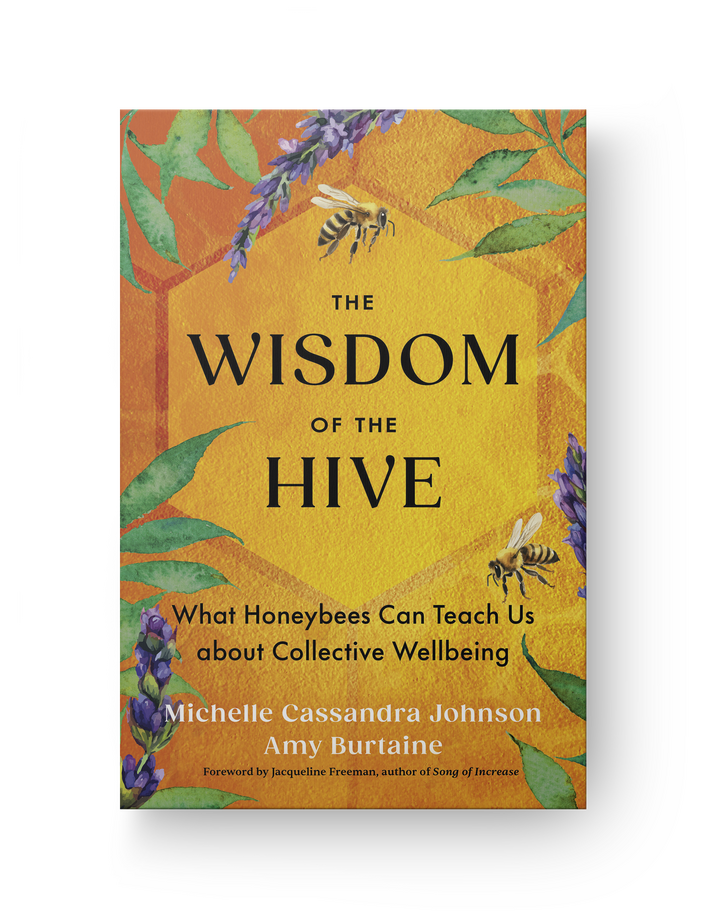Each of us has a somewhat mysterious inner power that could be called a “soul force.” In my experience, our soul force feels unstoppable, and it carries with it our uniqueness and what we care the most about. You could say it is the most essential part of us, that which we cannot be “talked out of,” that which demands expression.
Many people believe that this soul force, if it even exists, is not necessarily related to our work in the world. I am proposing just the opposite: that if we are to find our deepest fulfillment at work and achieve the highest potential in our career, in whatever field that might be, we need to engage and unleash this power.
What does it feel like to “work from our soul”? In my experience, there is a sense of drawing on a source of pure potential that is self-renewing and feels electrically charged. I don’t feel like I am working from a thin and limited layer of thoughts or strategy, but instead, there is a sense of being tapped into a charged energetic system of support and creativity.
Your Belly, Heart, and Head
For many years, I practiced somatic meditation, a type of meditation where we practice (among other things) inhabiting the inner space of the body and developing what’s known as interoception (being aware of internal bodily sensations). One of the things I discovered was the felt experience of three energy centers—the belly, heart, and head—that are referenced in many different systems of spiritual practice, and how these three centers can help us in engaging our soul force at work.
This might sound esoteric, but I actually think these three inner energy centers (called the “three brains” or “tan tiens” in Chinese medicine or “elixir fields” in certain types of qigong) are very discoverable and accessible to people who start to turn their attention inward.
To say more, when our belly center is open and energy is flowing through it in an unimpeded way, we can feel a sense of grounded power. We feel anchored and sense that we can weather the storms of life like a strong tree that is rooted deeply in the earth.
When our heart center is open, we can feel a sense of love streaming from us in every direction. This stream carries with it our care and concern for others. You could even say that we sense a stream of well wishes pouring out from our heart. Our work becomes imbued with a motivation to be of service to others and our world.
And when the center of our head is open, energy and information flow in through the top of our head in a way that often feels, at least in my experience, quite mysterious. New ideas come to us that can feel sparkly, such that even we are surprised by what is occurring to us. We become endlessly innovative in our work.
The Power of Letting Go
What does it take to awaken the intelligence of these three “inner brains” and allow the full power of our soul force to stream through these three energy centers? In my experience, what is required is not what you might expect. We don’t need to add anything to us. What is needed is a whole lot of letting go.
What are we letting go of? All of the ways we block ourselves, all of the ways we hold back. We are letting go of all of the ways we seek approval and are twisted up trying to appeal to others to be liked by them, the many ways we try to find acceptance and success via the unspoken and sometimes spoken rules of the status quo. We let go of twisting ourselves to fit a norm that doesn’t fit the truth of who we are. We let go of the mental construct of who we are so we can be the unique expression of the truth of who we are.
One year at Sounds True, we decided to give T-shirts out to the staff as part of our holiday gifting. Not a particularly original idea, but something we thought people would like. And our creative director put this slogan on the T-shirt: “Sounds True: Here for the Weird.” And I loved it.
Now, not everyone likes the word “weird”… but I do. A chapter was once written about me for a book on bringing your whole self to work, and the authors called it “Tami Simon: Flying Her Freak Flag.” I didn’t mind the use of the word “freak” either. The reason is that these are just words in popular culture that mean someone is willing to be themselves in all of their uniqueness and eccentricities. And that courage to step forward and be a brave truth-teller is something that I value.
Recently, I was in a discussion with a spiritual teacher about how interesting it is that we don’t become a blob of paste-like oneness when we drop deeply into what some people refer to as the “field of being,” the boundless, awake awareness that we share. Instead, we often become more uniquely expressive and can even appear a bit quirky. He shared his observation that it is our ego-construct, the veneer of “I’ve got it together,” that keeps us looking like copycats of others. When we allow that ego construct to lose its presentational grip, and perhaps even drop away, we make room for the emergence of our soul force, the innermost part of ourselves, to shine forth. We liberate our own “weird.”
As a leader of an organization, one of the things I have noticed is that when I present and speak from this innermost place without a lot of self-censorship, it naturally invites others to do the same. It is as if a “permission field” has been established. The company founder is telling it like it is—talking about what she learned in therapy this week, or something that occurred when talking with her wife (of the same sex), or a discovery that came through a sleepless night—and this sets up a new norm. This organization is actually a place where I don’t need to wear a mask at work; my truth-telling and uniqueness are welcome here. And this liberates a tremendous amount of energy and, dare I say, “soul power.”
What’s Your Genius Zone?
Several years ago, as the CEO at Sounds True, I found myself having difficulty figuring out how to best structure our organization (as our direct-to-consumer digital business began to grow rapidly with a different set of infrastructure needs from our traditional publishing business). I decided to hire an organizational consultant, Lex Sisney, the founder of Organizational Physics, whose expertise is helping midsize companies design to scale.
To my surprise, Lex started his assessment of Sounds True’s structural needs by having me do a deep-dive review of whether or not I was working in what he calls one’s “genius zone.” As I have come to understand Lex’s approach, part of what he believes contributes to organizational flourishing (and the ability to scale) is when people are in job functions that make the best use of their natural capacities and passions.
In a way, this seems utterly obvious. Like any good sporting team, you want people in the positions where they have the most natural affinity and talent. And when you have a whole team of people working in their genius zones, you have a much greater likelihood of having a winning team.
And yet as a founder, I have always had the attitude of “I will do whatever it takes. This isn’t about being in a ‘genius zone’; this is about getting done what needs to be done. All work is not enjoyable anyway, and just buck up and do the next thing needed.” This sounds very dutiful, and it is, but it is not the stance that creates the most high-functioning team, nor the most joy, nor the most soul engagement at work.
About a year and a half ago, I did an exercise where I went through my calendar for several weeks in a row and numbered every scheduled meeting on a 1-to-10 scale in terms of how excited I was for the meeting to take place. A very obvious pattern emerged: about half of the meetings in my calendar received the number 2 or 3, and about half of the meetings were an 8 or a 9 or even a 10.
The events in the calendar that received a high score related to interviews I was hosting, new partnerships that were being formed, and working directly with authors on new projects. The meetings that received a low score had to do with the business’s strategic execution in terms of finance, operations, and the coordination of various departments. This simple exercise presented a clear picture: I needed to shift my role and pass on a whole set of responsibilities so I could be free to focus on and expand the parts of my work that were exciting to me.
We have this notion that we need to trade what we really care about in order to make money. In a conversation with Rha Goddess, author of the book The Calling, I asked her about this. She said something to the effect of, “Why wouldn’t you earn the most money in your career doing what you are uniquely good at, what you excel at, what you uniquely have the ability to contribute?”
Her words landed. What if our greatest career achievement can only come from working in our area of natural genius, from letting go of all the ways we hold ourselves back and bringing our full soul force to work?
I believe that when we do, we find fulfillment at work. And also in life. And then, when our days come to an end, we find ourselves at peace, hands open and empty. We gave away all that we were given.
In support of your journey,
Tami Simon














